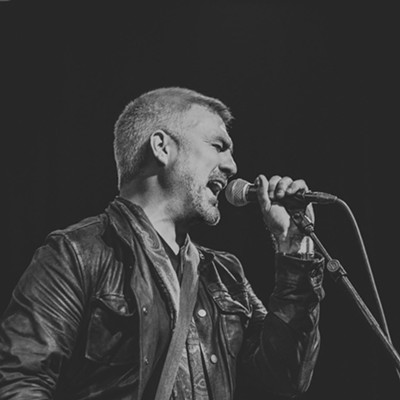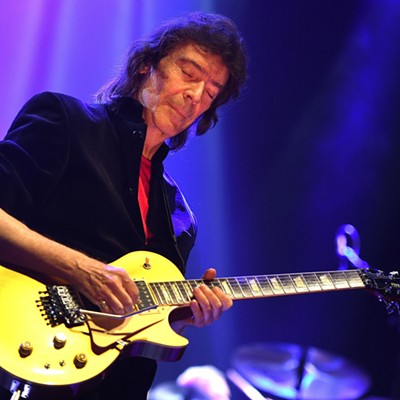Blowing into a conch shell as she drove north away from the Florida Keys, Kate Becker finally got the sound to come out right. In that moment, she felt the spark of her new album.
“I knew the first songs I was going to write for the album would have that Caribbean feel,” Becker says. “The turquoise blue water was to the right and the left, and I really soaked in the vibe and put that moment into the music.” In particular, “Cayo Hueso” and the title track “Pirate Radio” carry that vibe for Becker, two songs that helped open up the thematic territory she’d work in for the remainder of the album, exploring self-expression (unhindered and, at times, as the title song suggests, unauthorized), personal authenticity in creative endeavors and the relationship between commerce and art.
That Key West visit came after Becker’s previous band had broken up, which caused her to cancel a tour and begin searching for the next phase in her musical journey.
“I was in a low place. I knew Kate Becker & The Zodiacs had died. The musicians had dispersed, but there was a clean slate,” she says.
In Key West, Becker was visiting a friend who owns a French restaurant and by coincidence introduced her to a radio DJ. The next morning, the DJ played Becker’s music on air and interviewed her. “This guy loved everything I did, loved the music, he asked the right questions,” she says.
The positivity of the experience was reinforced when, halfway through the drive back to Miami, Becker stopped in at a health food store and heard people talking about the interview that morning.
“It was the right thing at the right moment where the universe just gave me a sign, gave me a gift,” she says. “It was light that came through the darkness and gave me that spark for Pirate Radio.”
Musically, the album steps away from the jazz and funk influences of her 2010 Soft Revolution album, incorporating Latin sounds, both from the Caribbean and the Arizona-Sonora borderlands. Petie Ronstadt co-produced the album and, in addition to other Ronstadt Generations members, the album features vocals from Salvador Duran and trumpet from Ruben Moreno of Mariachi Luz de Luna. “I knew the material deserved a high standard, and it was a match made in heaven. The musicians I have on this record are the best ones I could find, the best of what we have here. I’d already heard these musicians playing these parts,” Becker says. “I’m really humbled to be working with the Ronstadts. They’ve been very supportive and generous with me so I really had to step up.” The central metaphor of Pirate Radio carried over from the album to its creator and the process, Becker says. The record is truly a broadcast, unfiltered and authentic, of life as seen through Becker’s eyes. “I’ve reached a new maturity as a musician. This album has given me a whole new level of confidence,” Becker says. “With this record, more so than my others, this is who I am, who I want to be as a singer. I wanted to express my true self, no posturing, no pretending.”






